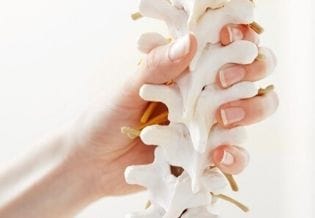Abstract
The brain requires certain fuels to function in high level. Literally, nutritional components can modulate the brain productivity. One of the right nutrition to enhance the brain power is dietary component of caffeine. Caffeine as a component of coffee, tea and chocolate is very popular. Although, depending on the dietary demands or conventional habits some people do not consume caffeine-containing substances (i.e. foods or beverage). Nonetheless, caffeine constituents maximize the brain potential via promoting the central nervous system (CNS) through blocking an inhibitory neurotransmitter (adenosine) and releasing some other specific neurotransmitters (noradrenaline, dopamine and serotonin) in brain. The chemistry of caffeine in a standard dose in fact can affect the brain intelligence.
Author Contributions
Academic Editor: Ian James Martins, Principal Research Fellow Edith Cowan University, Email: [email protected]
Checked for plagiarism: Yes
Review by: Single-blind
Copyright © 2020 Seyedeh Nasim Habibzadeh
 This is an open-access article distributed under the terms of the Creative Commons Attribution License, which permits unrestricted use, distribution, and reproduction in any medium, provided the original author and source are credited.
This is an open-access article distributed under the terms of the Creative Commons Attribution License, which permits unrestricted use, distribution, and reproduction in any medium, provided the original author and source are credited.
Competing interests
The authors have declared that no competing interests exist.
Citation:
Introduction
Human brain demands a particular nutritional content to function more optimally. The brain responses to the specific nutrients as components of certain nutrition modulate the brain power 1. Among different nutritional components, caffeine - based - substance can affect the brain potentiality. Caffeine (C8H10N4O2) is the common name for trimethylxanthine which is also known as coffeine, theine, mateine, guaranine, or methyltheobromine (Figure 1) 2.
Figure 1.The molecular schematic of caffeine
Caffeine empowers central nervous system (CNS) stimulation via blocking the neurotransmitter adenosine's receptors and unblocking some other specific neurotransmitter including noradrenaline, dopamine and serotonin receptors in brain. In this way, components of caffein enhance glucose utilization in brain which subsequently reinforce the brain productivity 3.
Caffeine can be found in different forms of nuts and leaves. Coffea Arabica that is used for coffee, Thea sinensis which is used for tea and Cola acuminata that is used as a nut, tea or in soft drinks such as cola 4. Caffeine in coffee, tea, cola is utilized worldwide. Caffeine, however, is not popular for certain individuals (i.e. due to distinctive natural dietary habits). Nonetheless, consumption of components of caffeine can notably boost the brain functional ability and competence 5.
Conclusion
The brain reacts to the caffeine. Caffeine substance exist in tea, coffee, and chocolate for example. The right dosage of caffeine - based - components impacts on brain reproductivity. The constituents of coffee in fact boost the brain ability. Nevertheless, it is obvious that the impact of caffeine on brain can be affected by overall daily activities and thus the body condition in different individual. Caffeine would not enhance the brain power when somebody due to hyperactivity is so exhausted at night time but can boost the brain power in the morning in many people.
References
- 1.Gómez-PinillaF.Brain foods: the effects of nutrients on brain function.Nat. RevNeurosci.2008 ;9(7): 568 – 578.
- 2.. Caffeine Effects on the Central Nervous System and Behavioral Effects Associated with Caffeine Consumption.https://www.ncbi.nlm.nih.gov/books/NBK202225 .
- 3.Canals M, Marcellino D, Fanellis F, Ciruela F, P de Benedetti et al. (2003) Adenosine A2A-dopamine D2 receptor-receptor heteromerization: Qualitative and quantitative assessment by fluorescence and bioluminescence energy transfer. , J. Biol. Chem. ; 278, 46741-46749.
